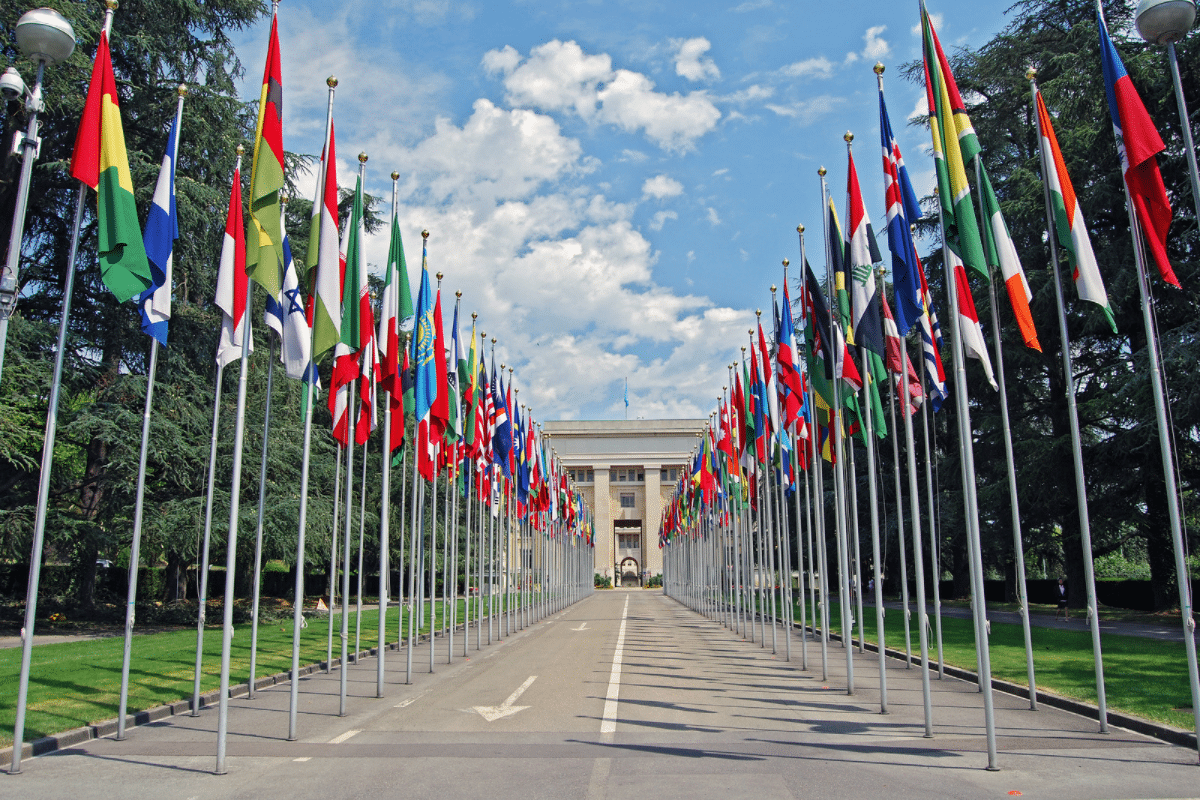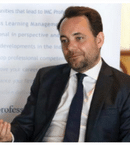An Interview with Bruno L’ecuyer, Chief Executive of the Investment Migration Council


Bruno L’ecuyer, Chief Executive in an interview with Mayes & Co.
Bruno L’ecuyer is Chief Executive of the Investment Migration Council. Bruno leads the Secretariat and is responsible for all IMC operations. A regular contributor to international publications and conferences in Europe, North America, Caribbean, Middle East and Asia, he has held positions in London, Paris and Hong Kong. Bruno was previously head at a national financial services association, acting as a bridge between government, industry and international policy institutions. He has extensive expertise and experience in the management and expansion of a professional services association. A member of the Governing Board, Bruno acts as its Secretary and chairs the Advisory Committee.
As Chief Executive of the Investment Migration Council, what issues are currently high on your agenda?
Regulation has long been one of our top priorities. It remains very high on our agenda, although the focus has shifted towards regulatory alignment and consolidation. I will explain why. Not long ago, investment migration was largely unregulated, while today it is subject to self-regulation, government regulation, and increasingly supranational oversight. However, standards and policies within the sector vary – both on a program and on an agent level.
The Investment Migration Council has been instrumental in raising standards through training and education as well as through the publication of guidelines and best practices, including Anti-Bribery and Corruption Policy and a Code of Ethics to name just two examples. However, we now need to take the next steps and refine the regulatory approach. We need a more uniform approach to regulation – one that is aligned with the demands and expectations of global standard-setting bodies such as the Financial Action Task Force (FATF). While some practitioners – such as lawyers, accountants, trust company service providers, and financial institutions – are already regulated for FATF purposes, others are not. These agents often follow a patchwork of voluntary compliance procedures usually developed for scheme accreditation purposes that are rarely verified by evaluation, peer review, or formal third-party audits. We are now proposing to significantly strengthen compliance, governance, and conflict management rules, which should bring investment migration within the formal mutual evaluation process. We simply see no future for unregulated practitioners.
Can you describe how the Investment Migration Council contributes to achieving the United Nations Sustainable Development Goals (SDGs)?
We frequently publish research on various matters concerning investment migration. We teamed up with the International Centre for Globalisation and Development (CIGLOB) to explore how programs can contribute to achieving the United Nations Sustainable Development Goals (SDGs). The UN estimates that $5 trillion to $7 trillion per year need to be mobilised to achieve the SDGs globally, with the estimates being $3.3 trillion to $4.5 trillion per year in developing countries, mainly for basic infrastructure, food security, climate change mitigation and adaptation, health and education.
The report explains that investment migration as a legal pathway can contribute in various ways to achieving the SDGs, for instance by bringing in foreign capital, human skills, and entrepreneurial capacity. It also shines a spotlight on programs and their impact on areas such as job creation, climate action, and health infrastructure. In many Caribbean island states, income from investment migration has played an important role in financing the reconstruction of important infrastructure damaged by hurricanes, while funding other key government activities and social programs in line with the SDGs. For example, investments supported the following SDGs: “Good health and wellbeing” (SDG3), “Clean water and sanitation” (SDG6), and “Industry, innovation, and infrastructure” (SDG9). Other investment migration programs, especially those linked to job-creation, can also have a direct impact on SDG8 – Decent Work and Economic Growth and SDG1 – Poverty reduction.
There is certainly more that can be done to ensure that investment migration advances the SDGs. The report highlights the need to align programs further to the new development perspectives offered by the SDGs and discusses common challenges and opportunities.
Can you speak on the regulatory frameworks set in place to ensure that investment migration programs remain effective and ethical?
I think investment migration has come a long way in a short time – both from a program and an agent level. Most program countries have understood the importance of properly regulating their programs, with high standards of due diligence being imposed. These KYC- and compliance processes are geared to assist in identifying the proceeds of crime, as well as combating money laundering and terrorist financing. While the majority of immigrant investors are genuine people, enhanced due diligence processes filter out criminals and fraudsters.
The IMC has been a driving force when it comes to the regulation of practitioners.
As I already mentioned, we developed a global Code of Ethics and Professional Conduct as well as an Anti-Bribery and Corruption (ABC) Policy. Together with due diligence experts BDO USA, Exiger and Refinitiv, we also formed a Due Diligence Working Group (DDWG), which recommended the adoption of minimum due diligence standards. However, we consider self-regulation a starting point. We welcome regulatory initiatives such as the European Commission’s 6th Anti-Money Laundering Directive, which proposes that agents of residence programs will be subject to EU AML/CFT rules. However, we fail to understand why the European Commission excludes practitioners involved in citizenship-by-investment (CBI) programs in its proposal. It is our view that investment migration should be entirely regulated and covered by AML/CFT regulation. The European Commission’s refusal to propose regulation of CBI programs – on the assumption that these are incompatible with EU law – is a missed opportunity.
How has Covid-19 impacted the industry and how has this industry helped in the recovery process of economies and governments?
Covid-19 definitely fast-tracked the transformation of investment migration. Digitization has been brought into sharp focus when the pandemic broke out and travel was severely restricted. Most program units quickly moved both their operations and the application process online, which meant Covid-19 caused very little disruption from a program level.
Meanwhile, agents reported a rise in enquiries as the volatility and uncertainty caused by the pandemic increased demand for a second residence or citizenship. However, client preferences changed under the influence of Covid-19. In the pre-Covid-19-era, most investor migrants wanted to benefit from visa-free travel opportunities and very few actually moved to their new country of residence or citizenship. Although strict border closures and lockdowns are easing, international mobility as we knew it has changed. What we are seeing now is that more clients than before are interested in making long-term moves or, at least, in relocating semi-permanently. As a result, programs and countries started to look into how their business models need to evolve if they want to remain attractive. New migration and visa concepts as well as novel investment options are all inspired by these changing dynamics.
Despite being influenced by new trends, it is safe to say that investment migration is here to stay. In particular, the Covid-19 pandemic and the associated economic fallout have highlighted the benefit of a ‘rainy day fund’. Many governments acknowledged the importance of investment migration revenue to keep their economies afloat during the pandemic. Going forward, it is likely that more countries will look into building up a reserve fund with the help of investment migration income.
In your opinion, which is the most complete CBI program available to HNWIs at this moment?
We are convinced that only programs that have implemented strong governance and oversight measures, including high KYC standards due diligence practices, will be successful in the long term. Weak due diligence requirements and lack of proper regulation clearly undermine the trust of other states in the nationalities granted. This can reduce the value of investment for the investor migrant, while also having adverse effects on the financial viability and socio-economic benefit of the program. The same is true for programs lacking transparency and accountability, or where rules are not sufficiently clear and strict. These programs can suffer from corruption and fraud, similarly damaging the credibility and image of the program.
Due diligence shortcomings can have serious consequences. Very recently, the European Commission proposed to partially suspend the visa-waiver agreement with Vanuatu because it feels that Vanuatu’s investor citizenship schemes present serious deficiencies and security failures. The European Commission argued that Vanuatu has granted citizenship to applicants listed in Interpol’s databases, has a low rejection rate and a processing time too short to allow for thorough screening; as well no systematic exchange of information with the applicants’ origin country. If the Commission’s proposal, which still needs to be voted on by EU states, is adopted, it would end visa-free travel for anyone who has acquired Vanuatu citizenship since 2015. The ban will be dropped if the government amends. However, if the proposal is backed by EU states, it will be the first time that the EU is exercising its powers and imposing sanctions on a country due to lax oversight in an investment migration program. This goes to show that strong regulation, effective governance, and thorough due diligence are the most important elements in investment migration.

